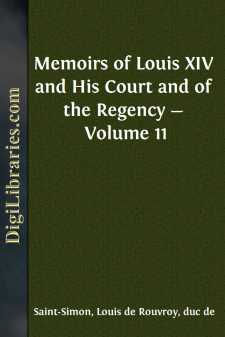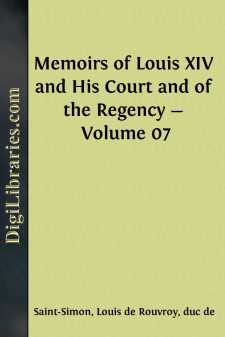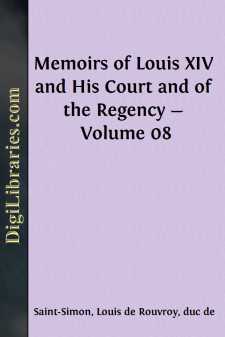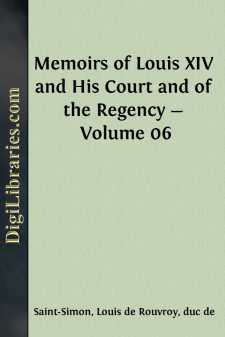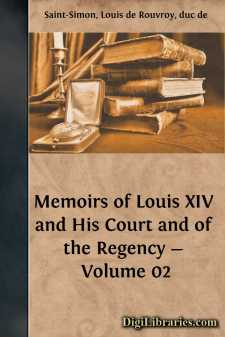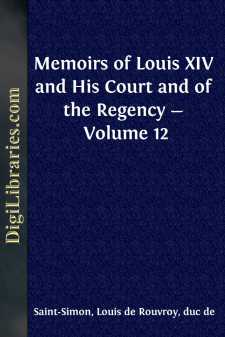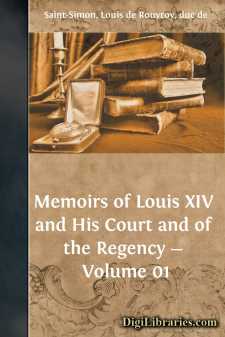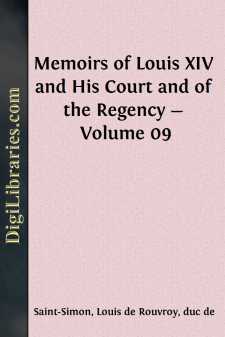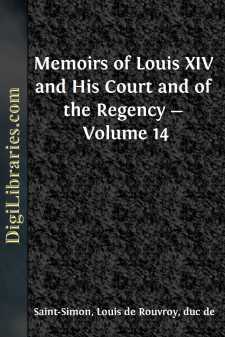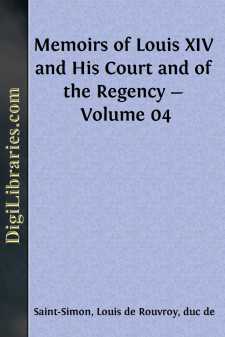Categories
- Antiques & Collectibles 13
- Architecture 36
- Art 48
- Bibles 22
- Biography & Autobiography 813
- Body, Mind & Spirit 142
- Business & Economics 28
- Children's Books 15
- Children's Fiction 12
- Computers 4
- Cooking 94
- Crafts & Hobbies 4
- Drama 346
- Education 46
- Family & Relationships 57
- Fiction 11828
- Games 19
- Gardening 17
- Health & Fitness 34
- History 1377
- House & Home 1
- Humor 147
- Juvenile Fiction 1873
- Juvenile Nonfiction 202
- Language Arts & Disciplines 88
- Law 16
- Literary Collections 686
- Literary Criticism 179
- Mathematics 13
- Medical 41
- Music 40
- Nature 179
- Non-Classifiable 1768
- Performing Arts 7
- Periodicals 1453
- Philosophy 64
- Photography 2
- Poetry 896
- Political Science 203
- Psychology 42
- Reference 154
- Religion 513
- Science 126
- Self-Help 84
- Social Science 81
- Sports & Recreation 34
- Study Aids 3
- Technology & Engineering 59
- Transportation 23
- Travel 463
- True Crime 29
Memoirs of Louis XIV and His Court and of the Regency - Volume 11
Description:
Excerpt
After having thus described with truth and the most exact fidelity all that has come to my knowledge through my own experience, or others qualified to speak of Louis XIV. during the last twenty-two years of his life: and after having shown him such as he was, without prejudice (although I have permitted myself to use the arguments naturally resulting from things), nothing remains but to describe the outside life of this monarch, during my residence at the Court.
However insipid and perhaps superfluous details so well known may appear after what has been already given, lessons will be found therein for kings who may wish to make themselves respected, and who may wish to respect themselves. What determines me still more is, that details wearying, nay annoying, to instructed readers, who had been witnesses of what I relate, soon escape the knowledge of posterity; and that experience shows us how much we regret that no one takes upon himself a labour, in his own time so ungrateful, but in future years so interesting, and by which princes, who have made quite as much stir as the one in question, are characterise. Although it may be difficult to steer clear of repetitions, I will do my best to avoid them.
I will not speak much of the King's manner of living when with the army. His hours were determined by what was to be done, though he held his councils regularly; I will simply say, that morning and evening he ate with people privileged to have that honour. When any one wished to claim it, the first gentleman of the chamber on duty was appealed to. He gave the answer, and if favourable you presented yourself the next day to the King, who said to you, "Monsieur, seat yourself at table." That being done, all was done. Ever afterwards you were at liberty to take a place at the King's table, but with discretion. The number of the persons from whom a choice was made was, however, very limited. Even very high military rank did not suffice. M. de Vauban, at the siege of Namur, was overwhelmed by the distinction. The King did the same honour at Namur to the Abbe de Grancey, who exposed himself everywhere to confess the wounded and encourage the troops. No other Abbe was ever so distinguished. All the clergy were excluded save the cardinals, and the bishops, piers, or the ecclesiastics who held the rank of foreign princes.
At these repasts everybody was covered; it would have been a want of respect, of which you would have been immediately informed, if you had not kept your hat on your head. The King alone was uncovered. When the King wished to speak to you, or you had occasion to speak to him, you uncovered. You uncovered, also, when Monseigneur or Monsieur spoke to you, or you to them. For Princes of the blood you merely put your hand to your hat. The King alone had an armchair. All the rest of the company, Monseigneur included, had seats, with backs of black morocco leather, which could be folded up to be carried, and which were called "parrots." Except at the army, the King never ate with any man, under whatever circumstances; not even with the Princes of the Blood, save sometimes at their wedding feasts.
Let us return now to the Court.
At eight o'clock the chief valet de chambre on duty, who alone had slept in the royal chamber, and who had dressed himself, awoke the King. The chief physician, the chief surgeon, and the nurse (as long as she lived), entered at the same time; the latter kissed the King; the others rubbed and often changed his shirt, because he was in the habit of sweating a great deal....


